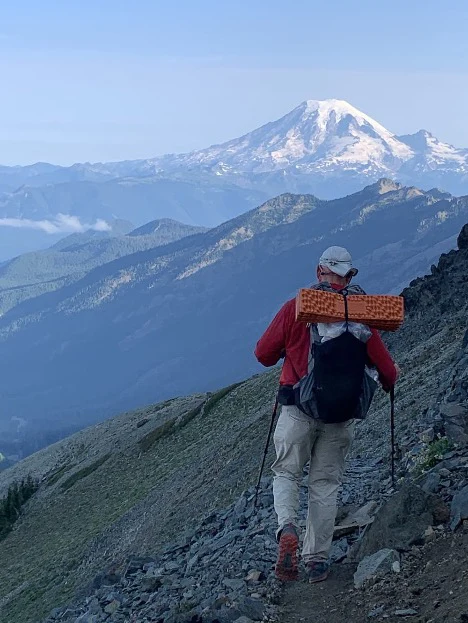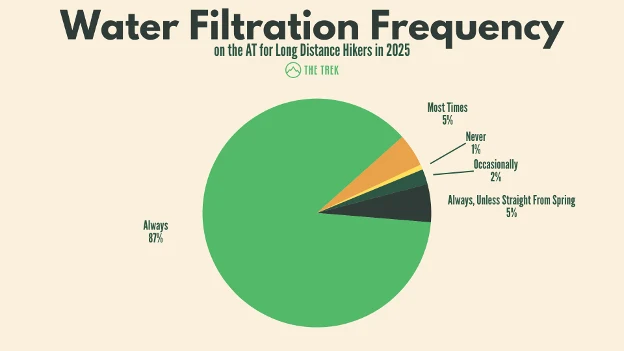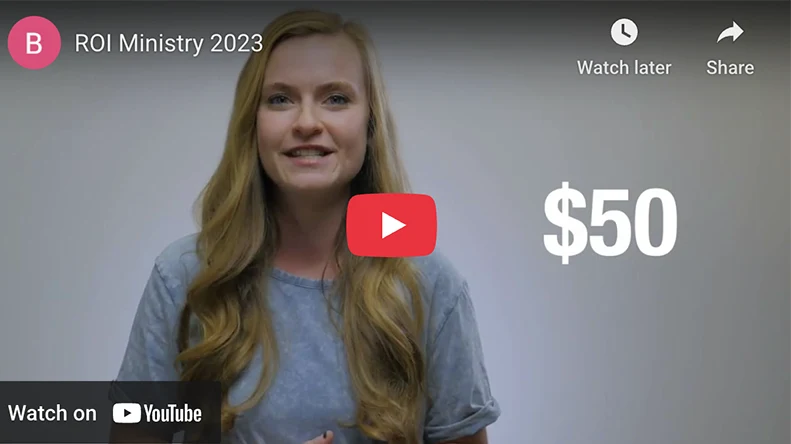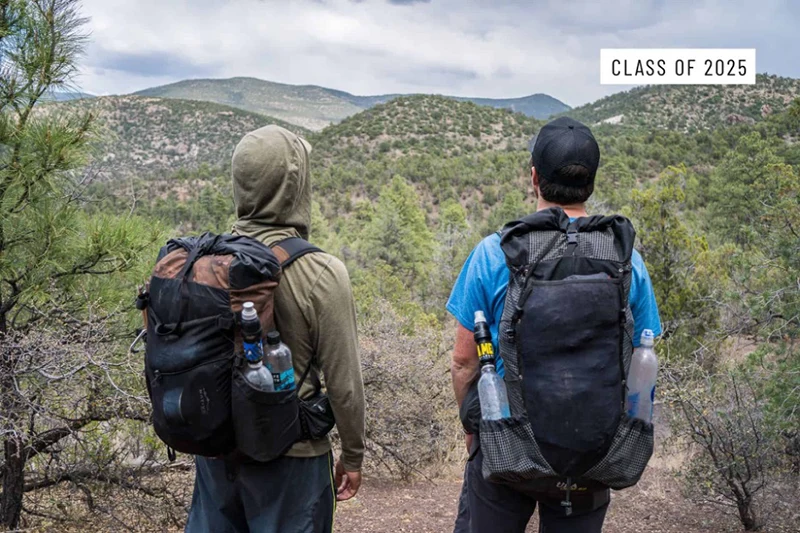Wildfires 101: Recreating Responsibly
Wildfires 101: Recreating Responsibly

Wildfires 101: Recreating Responsibly
YouTube video highlight
Wildfires are a powerful and often devastating force of nature. While they can be catastrophic, they also play a crucial role in various ecosystems.
Read more about the projectWildfires are a powerful and often devastating force of nature. While they can be catastrophic, they also play a crucial role in various ecosystems. Here, we'll explore how wildfires start (both naturally and through human activities), recent statistics on wildfire occurrences, the benefits and drawbacks of wildfires, their impacts on health, the outdoors, and air quality, and ways to prevent them by practicing responsible outdoor habits.
Recreating Among Wildfire Remains

I’ve encountered the remnants of many wildfires while backpacking, and each time it’s a stark reminder of their damaging effects. The air quality can become so bad that breathing becomes uncomfortable, and the smoky smell sticks to everything, lingering for miles. Clear views and scenic landscapes are replaced with hazy, obscured vistas, which can dampen the joy of exploration. For anyone out in nature, the lingering smoke not only impacts health but also takes away from the beauty that draws us outside in the first place.
What can cause a wildfire?
Natural Sources
Lightning: One of the most common natural causes, especially during thunderstorms, lightning can spark fires in dry vegetation.
Volcanic Activity: Rare but powerful, lava flows and ash from eruptions can ignite surrounding vegetation.
Human Activity
Unattended Campfires and Fireworks: These are preventable sources, often resulting from carelessness in outdoor areas.
Agricultural Burns and Slash-and-Burn Practices: These techniques are especially common in agricultural areas but, when not managed properly, can escape control and cause widespread damage.
Power Lines and Electrical Failures: Exposed electrical infrastructure can lead to wildfires, especially in high-wind or dry conditions, as seen in recent cases in the U.S.
Arson: Though less common, arson remains a deliberate cause of many wildfires.

With the warming climate, wildfire occurrences have risen. Here are some key figures to illustrate the scale of recent wildfire activity:
United States: In 2023, there were over 56,000 recorded wildfires, burning approximately 10.3 million acres of land.
Australia: In the 2019-2020 fire season, fires burned 46 million acres, devastating ecosystems and human communities.
Canada: Wildfire seasons are becoming longer and more intense, with 2023 setting records for the most area burned, as prolonged heat and dryness fueled vast blazes.
Serving a Purpose
- Ecological Benefits: Fires play a natural role in certain ecosystems by clearing underbrush, enabling sunlight to reach the forest floor, and promoting the growth of new plants.
- Soil Fertility: The ash left by fires enriches the soil with essential nutrients, supporting plant regrowth.
- Biodiversity Boost: Fires can clear areas for diverse plant and animal species to thrive, maintaining the balance of ecosystems.

Impact on Human Health, the Outdoors, and Air Quality
- Human Health: Wildfire smoke is a serious health hazard, containing fine particles (PM2.5) that can penetrate deep into the lungs. Exposure to this can aggravate respiratory conditions, trigger asthma attacks, and even lead to long-term cardiovascular issues.
- Outdoor Activities: Wildfires can seriously impact outdoor experiences.
- Air Quality: Wildfire smoke affects air quality not only in fire-stricken areas but also in regions far downwind. States like Washington, California, and Oregon have seen extended periods of unhealthy air quality due to drifting smoke.

Prevention and Responsible Practices
Prevention starts with individual responsibility, especially for those spending time outdoors. During dry seasons, pay attention to regional fire bans and restrictions on campfires, firework usage, and controlled burns, and when in doubt, lean on the Principles of Leave No Trace.
- Plan Ahead and Prepare: Check for fire conditions and restrictions before heading outdoors.
- Be Careful with Campfires: Only build campfires in designated areas and ensure they are fully extinguished before leaving.
- Dispose of Waste Properly: Avoid leaving trash that could fuel a fire.
- Report Suspicious Activity: If you witness potentially hazardous activities, such as an unattended fire or fireworks in a restricted area, report it to authorities immediately.

Wildfires will remain an integral part of certain ecosystems, but human actions have increased their frequency and intensity. As climate change continues to influence fire patterns globally, proactive steps at both individual and policy levels will be essential to safeguarding both natural landscapes and human communities. By respecting fire restrictions, following responsible outdoor practices, and supporting ecological efforts, we can help mitigate the risks associated with wildfires.
Wildfires 101: Recreating Responsibly


Wildfires are a powerful and often devastating force of nature. While they can be catastrophic, they also play a crucial role in various ecosystems. Here, we'll explore how wildfires start (both naturally and through human activities), recent statistics on wildfire occurrences, the benefits and drawbacks of wildfires, their impacts on health, the outdoors, and air quality, and ways to prevent them by practicing responsible outdoor habits.
Recreating Among Wildfire Remains

I’ve encountered the remnants of many wildfires while backpacking, and each time it’s a stark reminder of their damaging effects. The air quality can become so bad that breathing becomes uncomfortable, and the smoky smell sticks to everything, lingering for miles. Clear views and scenic landscapes are replaced with hazy, obscured vistas, which can dampen the joy of exploration. For anyone out in nature, the lingering smoke not only impacts health but also takes away from the beauty that draws us outside in the first place.
What can cause a wildfire?
Natural Sources
Lightning: One of the most common natural causes, especially during thunderstorms, lightning can spark fires in dry vegetation.
Volcanic Activity: Rare but powerful, lava flows and ash from eruptions can ignite surrounding vegetation.
Human Activity
Unattended Campfires and Fireworks: These are preventable sources, often resulting from carelessness in outdoor areas.
Agricultural Burns and Slash-and-Burn Practices: These techniques are especially common in agricultural areas but, when not managed properly, can escape control and cause widespread damage.
Power Lines and Electrical Failures: Exposed electrical infrastructure can lead to wildfires, especially in high-wind or dry conditions, as seen in recent cases in the U.S.
Arson: Though less common, arson remains a deliberate cause of many wildfires.

With the warming climate, wildfire occurrences have risen. Here are some key figures to illustrate the scale of recent wildfire activity:
United States: In 2023, there were over 56,000 recorded wildfires, burning approximately 10.3 million acres of land.
Australia: In the 2019-2020 fire season, fires burned 46 million acres, devastating ecosystems and human communities.
Canada: Wildfire seasons are becoming longer and more intense, with 2023 setting records for the most area burned, as prolonged heat and dryness fueled vast blazes.
Serving a Purpose
- Ecological Benefits: Fires play a natural role in certain ecosystems by clearing underbrush, enabling sunlight to reach the forest floor, and promoting the growth of new plants.
- Soil Fertility: The ash left by fires enriches the soil with essential nutrients, supporting plant regrowth.
- Biodiversity Boost: Fires can clear areas for diverse plant and animal species to thrive, maintaining the balance of ecosystems.

Impact on Human Health, the Outdoors, and Air Quality
- Human Health: Wildfire smoke is a serious health hazard, containing fine particles (PM2.5) that can penetrate deep into the lungs. Exposure to this can aggravate respiratory conditions, trigger asthma attacks, and even lead to long-term cardiovascular issues.
- Outdoor Activities: Wildfires can seriously impact outdoor experiences.
- Air Quality: Wildfire smoke affects air quality not only in fire-stricken areas but also in regions far downwind. States like Washington, California, and Oregon have seen extended periods of unhealthy air quality due to drifting smoke.

Prevention and Responsible Practices
Prevention starts with individual responsibility, especially for those spending time outdoors. During dry seasons, pay attention to regional fire bans and restrictions on campfires, firework usage, and controlled burns, and when in doubt, lean on the Principles of Leave No Trace.
- Plan Ahead and Prepare: Check for fire conditions and restrictions before heading outdoors.
- Be Careful with Campfires: Only build campfires in designated areas and ensure they are fully extinguished before leaving.
- Dispose of Waste Properly: Avoid leaving trash that could fuel a fire.
- Report Suspicious Activity: If you witness potentially hazardous activities, such as an unattended fire or fireworks in a restricted area, report it to authorities immediately.

Wildfires will remain an integral part of certain ecosystems, but human actions have increased their frequency and intensity. As climate change continues to influence fire patterns globally, proactive steps at both individual and policy levels will be essential to safeguarding both natural landscapes and human communities. By respecting fire restrictions, following responsible outdoor practices, and supporting ecological efforts, we can help mitigate the risks associated with wildfires.
Wildfires 101: Recreating Responsibly


Wildfires are a powerful and often devastating force of nature. While they can be catastrophic, they also play a crucial role in various ecosystems. Here, we'll explore how wildfires start (both naturally and through human activities), recent statistics on wildfire occurrences, the benefits and drawbacks of wildfires, their impacts on health, the outdoors, and air quality, and ways to prevent them by practicing responsible outdoor habits.
Recreating Among Wildfire Remains

I’ve encountered the remnants of many wildfires while backpacking, and each time it’s a stark reminder of their damaging effects. The air quality can become so bad that breathing becomes uncomfortable, and the smoky smell sticks to everything, lingering for miles. Clear views and scenic landscapes are replaced with hazy, obscured vistas, which can dampen the joy of exploration. For anyone out in nature, the lingering smoke not only impacts health but also takes away from the beauty that draws us outside in the first place.
What can cause a wildfire?
Natural Sources
Lightning: One of the most common natural causes, especially during thunderstorms, lightning can spark fires in dry vegetation.
Volcanic Activity: Rare but powerful, lava flows and ash from eruptions can ignite surrounding vegetation.
Human Activity
Unattended Campfires and Fireworks: These are preventable sources, often resulting from carelessness in outdoor areas.
Agricultural Burns and Slash-and-Burn Practices: These techniques are especially common in agricultural areas but, when not managed properly, can escape control and cause widespread damage.
Power Lines and Electrical Failures: Exposed electrical infrastructure can lead to wildfires, especially in high-wind or dry conditions, as seen in recent cases in the U.S.
Arson: Though less common, arson remains a deliberate cause of many wildfires.

With the warming climate, wildfire occurrences have risen. Here are some key figures to illustrate the scale of recent wildfire activity:
United States: In 2023, there were over 56,000 recorded wildfires, burning approximately 10.3 million acres of land.
Australia: In the 2019-2020 fire season, fires burned 46 million acres, devastating ecosystems and human communities.
Canada: Wildfire seasons are becoming longer and more intense, with 2023 setting records for the most area burned, as prolonged heat and dryness fueled vast blazes.
Serving a Purpose
- Ecological Benefits: Fires play a natural role in certain ecosystems by clearing underbrush, enabling sunlight to reach the forest floor, and promoting the growth of new plants.
- Soil Fertility: The ash left by fires enriches the soil with essential nutrients, supporting plant regrowth.
- Biodiversity Boost: Fires can clear areas for diverse plant and animal species to thrive, maintaining the balance of ecosystems.

Impact on Human Health, the Outdoors, and Air Quality
- Human Health: Wildfire smoke is a serious health hazard, containing fine particles (PM2.5) that can penetrate deep into the lungs. Exposure to this can aggravate respiratory conditions, trigger asthma attacks, and even lead to long-term cardiovascular issues.
- Outdoor Activities: Wildfires can seriously impact outdoor experiences.
- Air Quality: Wildfire smoke affects air quality not only in fire-stricken areas but also in regions far downwind. States like Washington, California, and Oregon have seen extended periods of unhealthy air quality due to drifting smoke.

Prevention and Responsible Practices
Prevention starts with individual responsibility, especially for those spending time outdoors. During dry seasons, pay attention to regional fire bans and restrictions on campfires, firework usage, and controlled burns, and when in doubt, lean on the Principles of Leave No Trace.
- Plan Ahead and Prepare: Check for fire conditions and restrictions before heading outdoors.
- Be Careful with Campfires: Only build campfires in designated areas and ensure they are fully extinguished before leaving.
- Dispose of Waste Properly: Avoid leaving trash that could fuel a fire.
- Report Suspicious Activity: If you witness potentially hazardous activities, such as an unattended fire or fireworks in a restricted area, report it to authorities immediately.

Wildfires will remain an integral part of certain ecosystems, but human actions have increased their frequency and intensity. As climate change continues to influence fire patterns globally, proactive steps at both individual and policy levels will be essential to safeguarding both natural landscapes and human communities. By respecting fire restrictions, following responsible outdoor practices, and supporting ecological efforts, we can help mitigate the risks associated with wildfires.
























































































































